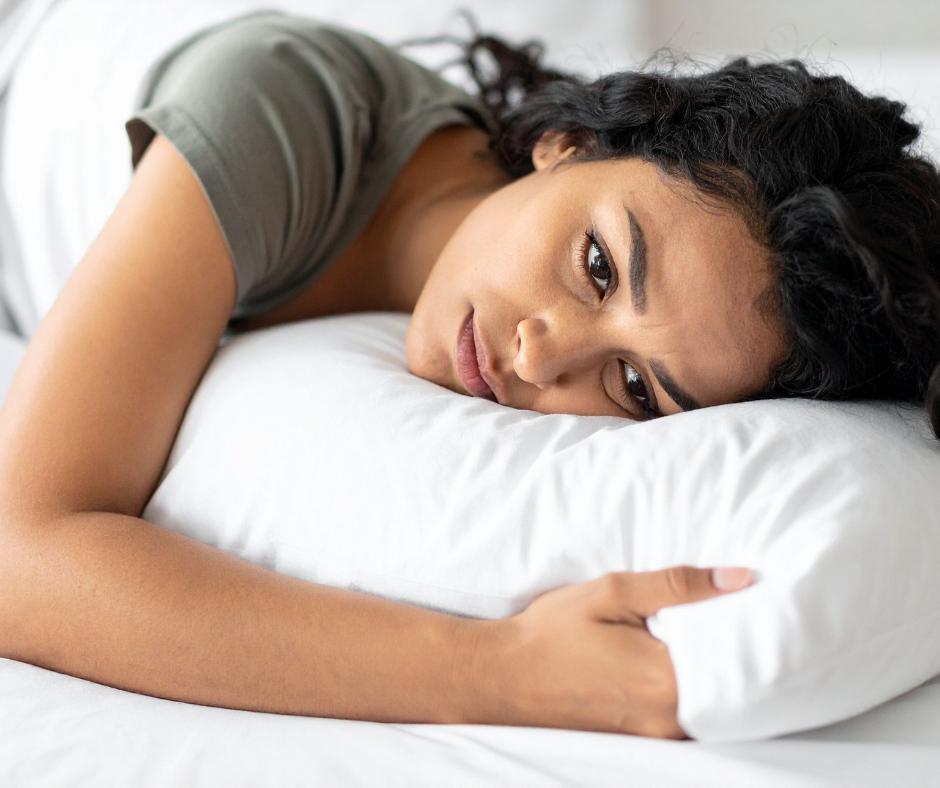When Menopause Keeps You Tossing and Turning:
How to Find Gentle Ways to Look After Yourself
Menopause is a natural part of life, but it can sometimes bring changes that leave us tossing and turning at night. In our recent survey of 1,000 peri- and menopausal women, we found that 9 in 10 (90%) experience sleeplessness, and many struggle to get a full night’s rest.[i]
We know that poor sleep isn’t just about feeling tired. It can affect mood, energy and overall wellbeing. Our survey showed that lack of sleep often increases stress and anxiety, making it even harder to rest, and sometimes impacting daily life and relationships.
Here’s what our survey revealed:
- Nearly three quarters of women (72%) noticed a decline in sleep quality since entering perimenopause or menopause
- 70% rarely get 6 hours or more of uninterrupted sleep and 72% wake feeling groggy even after sleeping well
- 68% feel tired most of the time, with over half (57%) regularly relying on naps or needing to rest just to get through the day
- 37% say poor sleep is straining their relationships, with 46% choosing to sleep separately from their partner to avoid disturbing them or to improve sleep quality
- A third (37%) rely on sugary snacks, drinks and coffee for a quick boost, which can sometimes make symptoms harder to manage
Finding gentle ways to look after yourself
At Kalms, we understand that breaking the cycle of sleepless nights and stress can feel challenging. That’s why we’ve put together some gentle strategies used to support more restful sleep during any stage of life:
1. Create a sleep-positive environment
Setting the right environment can make a real difference. Dim the lights an hour before bed to encourage melatonin production, the hormone that supports sleep. Leave phones and other electronic devices outside the bedroom, as the blue light they emit can interfere with your body’s natural sleep-wake rhythm and hinder rest. Instead, make your bedroom a calm, clutter-free space. Keep it cool, dark and quiet, and opt for breathable bedding and pyjamas to help ease discomfort from hot flushes and promote uninterrupted sleep.
2. Rethink evening habits
Establishing healthy habits in the evening can make a big difference to how well you sleep. Avoid rich, sugary or spicy foods, as well as caffeine and alcohol, in the hours before bed, as these can all interfere with your ability to drift off. A warm bath with lavender-infused bubbles can help soothe muscle tension and calm a busy mind, while unwinding with a good book, rather than scrolling on your phone, can ease you into a more restful state.
3. Unwind your mind
Stress and busy thoughts can make falling asleep difficult, so it’s important to find ways to calm your mind before bed. If you find yourself lying awake with racing thoughts, consider incorporating a relaxation technique. One effective method is deep breathing, try the box breathing technique: inhale for four seconds, hold your breath for four, exhale for four, and hold again for four seconds before repeating the cycle. This simple exercise can help activate your parasympathetic nervous system, inducing a state of calm and helping you to relax.
4. Consider natural remedies
Many women use natural remedies as part of their routine – used to ease tension during the day and support relaxation at night. Our Kalms Day Tablets are used to help manage mild stress and restlessness during the day. When it’s time to unwind at night, Kalms Night One-A-Night can be used to support relaxation and prepare your body for a more restful sleep. Both products contain valerian root, a traditional herbal ingredient used for its calming properties.
For those who prefer another option throughout the day, Kalms Lavender contains lavender oil, traditionally used to ease mild anxiety and promote relaxation. It comes in a convenient one-a-day soft capsule, making it easy to include during challenging times.

[i] Hormones and emotional well-being: A study conducted by Censuswide involving 1,000 UK peri menopausal and menopausal women respondents. Commissioned by Kalms Herbal Remedies. February 2025.
-
Posted by Emily Garfield
19th November 2025
